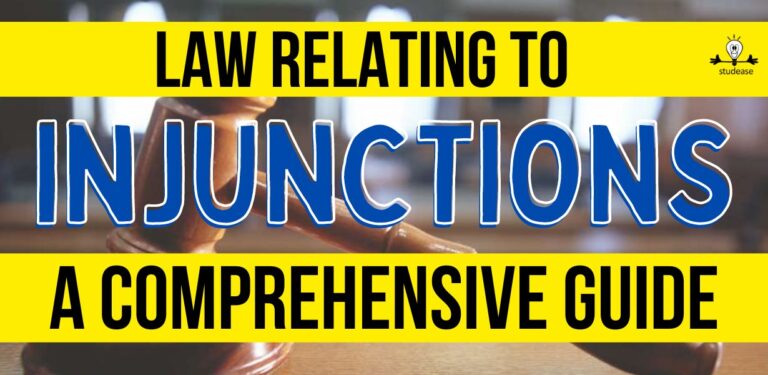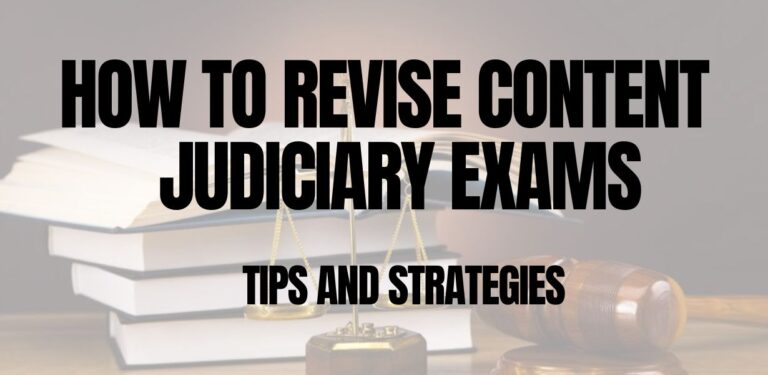How to Prepare for Judiciary Interview: Tips and Strategies

Preparing for a judiciary interview can be a tedious task, especially if you are not sure what to expect. However, with the right tips and strategies, you can increase your chances of success and land your dream job as a judge.
In this article, I will provide you with some valuable insights on how to prepare for a judiciary interview.
Firstly, it is important to understand the purpose of the interview.
The judiciary interview is designed to assess your knowledge, skills, and suitability for the role of a judge. Therefore, you need to demonstrate your legal expertise, critical thinking abilities, and ethical standards.
You should also be able to communicate effectively, listen actively, and show empathy towards others. By understanding the expectations of the interviewers, you can tailor your responses accordingly and make a positive impression.
Secondly, you need to research the organization and the position you are applying for.
This will help you to understand the values, mission, and culture of the judiciary, as well as the specific requirements of the job. You should also familiarize yourself with the relevant laws, regulations, and cases that are relevant to the role.
This will demonstrate your commitment to continuous learning and professional development. Additionally, you should practice answering common interview questions and prepare examples of your achievements and experiences that illustrate your strengths and competencies.
Page Contents
Understanding the Judiciary Interview Process
Understanding the interview process can help you to feel more confident and prepared.
The interview may be more in-depth and may focus on your legal skills, judgment, and ability to work collaboratively with others.
It is important to remember that the role of a judge is to interpret the law and make decisions that are fair and impartial. As such, the interview process will likely focus on your ability to think critically, analyze legal issues, and apply the law to real-world situations.
To prepare for the interview process, it is important to research the court system and the judge or judges you will be interviewing with. You should also be prepared to discuss your legal experience, academic background, and personal qualities that make you a good fit for the position.
Overall, the key to success in the judiciary interview process is to be confident, knowledgeable, and clear in your responses.
By understanding the interview process and preparing accordingly, you can increase your chances of landing a position within the court system.
Preparation Strategies
Preparing for a judiciary interview requires a combination of research, knowledge acquisition, and practical skills. Here are some strategies to help you prepare for your upcoming interview:
Research and Knowledge Acquisition
Before your interview, it’s important to research the court or organization you are interviewing with. This includes understanding their mission, values, and recent cases they have handled. You should also research the judges or attorneys who will be conducting the interview.
Additionally, brush up on your legal knowledge and current events related to the legal field. This can be done through reading legal journals, attending seminars, or taking online courses.
Mock Interviews and Feedback
Mock interviews are a great way to practice your interview skills and receive feedback. You can ask a mentor, colleague, or friend to conduct a mock interview and provide constructive criticism on your performance.
It’s important to take this feedback seriously and work on improving your weaknesses. This can include improving your communication skills, body language, and answering questions more confidently.
Reviewing Common Interview Questions
Reviewing common interview questions can help you feel more prepared and confident during the interview. Some common questions include:
- Why do you want to work for this court/organization?
- What are your strengths and weaknesses?
- How do you handle difficult situations?
Prepare answers to these questions and practice delivering them in a clear and concise manner.
Understanding Case Law and Precedent
Judiciary interviews often involve questions related to case law and precedent. It’s important to have a solid understanding of these concepts and be able to apply them to hypothetical scenarios.
You can improve your knowledge in this area by reading legal cases and analyzing how they relate to current legal issues.
Legal Research and Analysis Skills
Legal research and analysis skills are essential for any judiciary position. Make sure to brush up on your legal research skills and familiarize yourself with legal databases and search engines.
You should also practice analyzing legal cases and identifying key issues and arguments.
By following these preparation strategies, you can feel more confident and prepared for your upcoming judiciary interview.
Communicating Your Experience and Background
When preparing for a judiciary interview, it is important to effectively communicate your experience and background to the interviewers. This will help them understand your qualifications and suitability for the position. Here are some tips and strategies for communicating your experience and background:
Articulating Your Career Goals and Aspirations
One way to communicate your experience and background is by articulating your career goals and aspirations. This will help the interviewers understand your motivations and how the position fits into your long-term career plans. Be honest and clear about your goals and how the judiciary position aligns with them.
Highlighting Relevant Experience and Achievements
Another way to communicate your experience and background is by highlighting relevant experience and achievements. This will help the interviewers understand your skills and accomplishments in the legal field. Use specific examples to illustrate your experience and achievements. For example, if you have experience working on a particular type of case, explain how you contributed to the case and what you learned from the experience.
It is important to be confident and knowledgeable when communicating your experience and background.
However, avoid making exaggerated or false claims. Be clear and concise in your communication, and use formatting such as tables, lists, bold, and italic to help convey information to the interviewers. Finally, keep in mind the relevant entities such as your law school background, legal system, and career goals and aspirations when communicating your experience and background.
Presenting Your Skills
When it comes to preparing for a judiciary interview, it is important to present your skills effectively. This section will cover the key skills you should focus on and how to showcase them during the interview.
Effective Communication Skills
Effective communication is essential for a successful career in the judiciary. During the interview, it is important to demonstrate your communication skills by speaking clearly and concisely. Make sure to listen carefully to the interviewer’s questions and answer them directly. Avoid using jargon or technical terms that the interviewer may not understand.
Confidence and Body Language
Confidence and body language are also important in the judiciary. Make sure to maintain good eye contact with the interviewer and sit up straight. Use confident body language such as a firm handshake and a smile. Avoid fidgeting or slouching, as this can convey nervousness.
Attention to Detail and Critical Thinking
Attention to detail and critical thinking are essential skills for a career in the judiciary. During the interview, be sure to highlight your attention to detail by providing specific examples of situations where you demonstrated this skill.
Additionally, showcase your critical thinking skills by providing thoughtful and well-reasoned answers to the interviewer’s questions.
Responding to Behavioral Questions
Behavioral questions are a common type of question asked in judiciary interviews. These questions ask about specific situations you have encountered in the past and how you responded to them.
Managing Stress and Nervousness
Finally, it is important to manage stress and nervousness during the interview. Take deep breaths and focus on staying calm and composed. Practice beforehand with mock interviews to help alleviate any anxiety you may have.
By focusing on these key skills and strategies, you can effectively present your skills during a judiciary interview and increase your chances of success.
After the Interview
Congratulations on completing your Judiciary Interview! The process of preparing for and participating in an interview can be challenging, but it is also an excellent opportunity to showcase your enthusiasm and passion for the judicial field.
Now that the interview is over, there are a few steps you can take to continue your growth and demonstrate your interest in the position.
Following Up with Thank You Notes
Following up with a thank you note is a great way to show your appreciation for the interviewers’ time and consideration. It is also an opportunity to reiterate your interest in the position and highlight any relevant skills or experiences that you may not have had the chance to discuss during the interview.
Be sure to personalize each note and mention specific details from your conversation to show that you were actively engaged in the discussion.
Continued Learning and Growth
Even though the interview is over, there is still much to learn and explore in the judicial field. Consider reaching out to a judicial clerk or other legal professional to discuss challenges and opportunities in the field. You can also continue to research and study applicable laws and regulations to stay up-to-date on the latest developments.
Remember, the interview is just one step in the process of pursuing a career in the judicial field.
By following up with thank you notes and continuing your learning and growth, you can demonstrate your commitment to the field and increase your chances of success.







